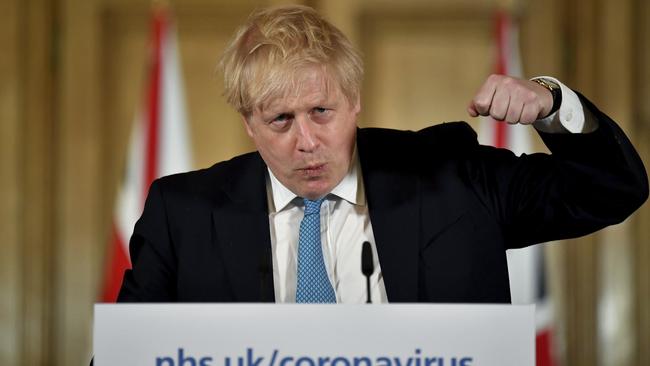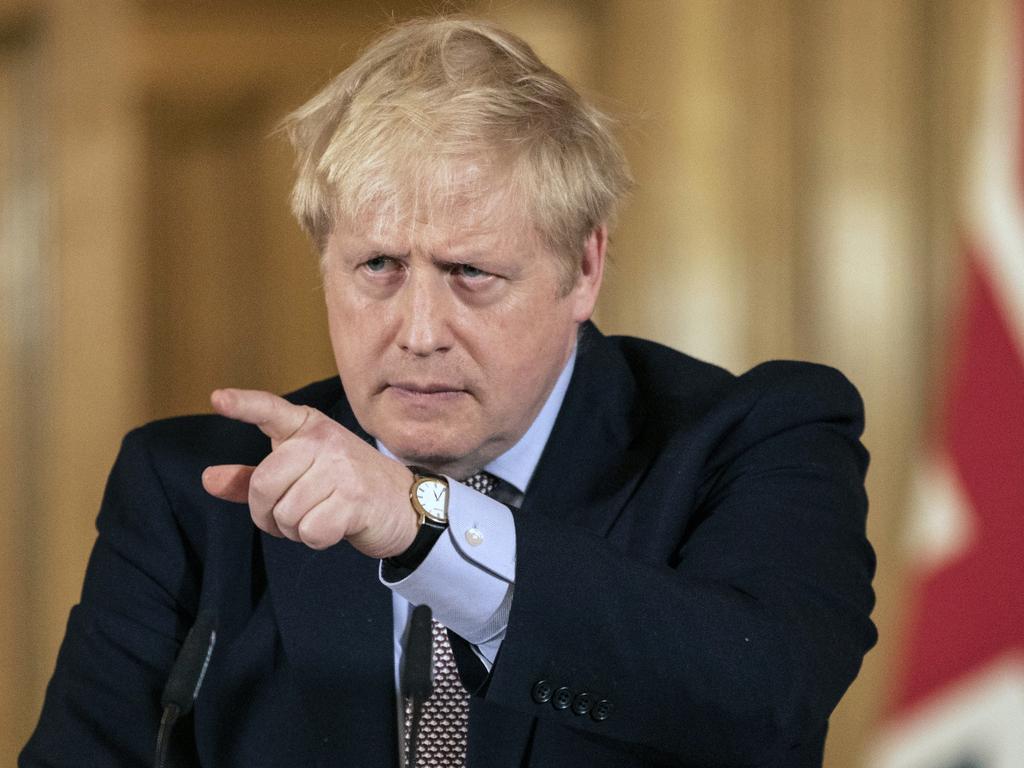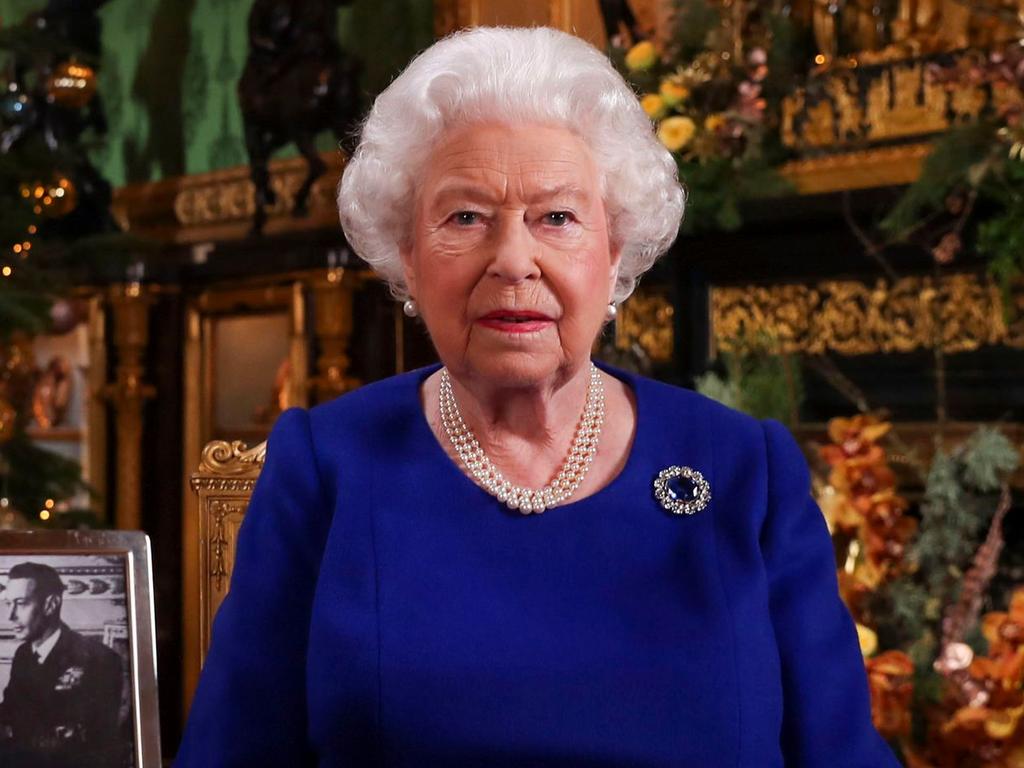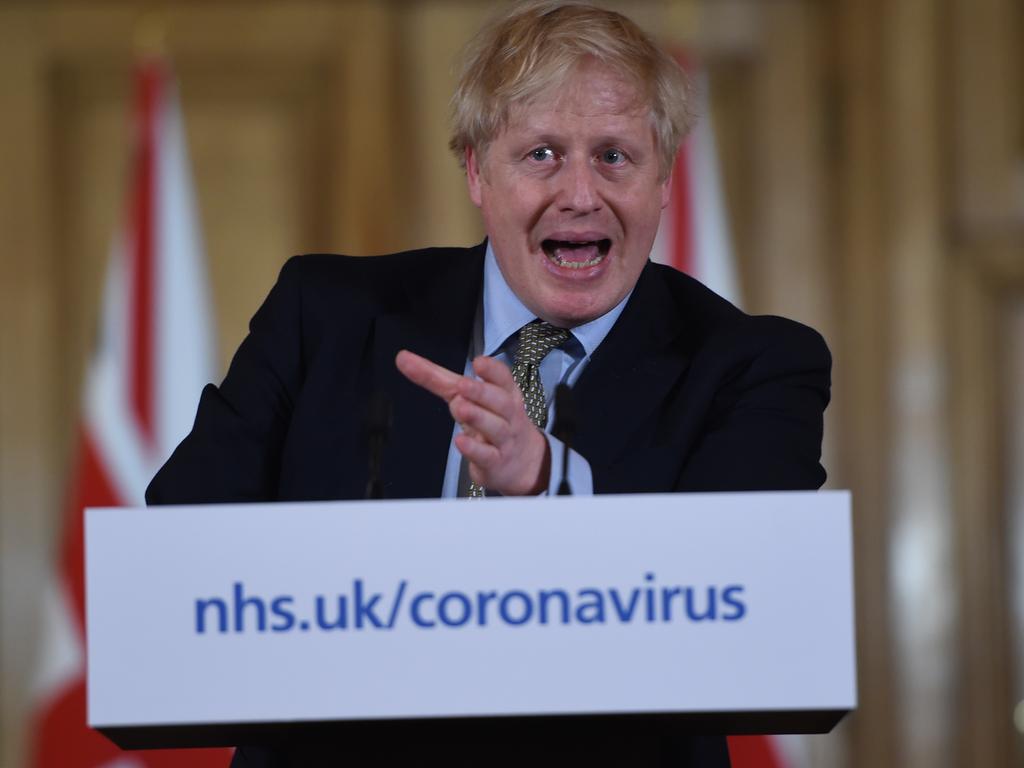Johnson looks to Churchill to rule a Britain at war
London, the epicentre of Britain’s COVID-19 outbreak, provides lessons for Australia and the rest of the world.

Boris Johnson initially resisted measures that would infringe upon personal liberty and wreck the economy. The largely Keep Calm and Carry On approach of last week gave way to a more assertive and focused response this week.
Gone was the disdain for experts as he was flanked by the government’s Chief Medical Officer and Chief Medical Adviser for daily briefings. Gone, too, was the suggestion of building “herd immunity”. The priority now was to dramatically slow the virus’s spread rather than risk a projected 250,000 deaths.
Advice was given to work from home, cancel mass gatherings, practise “social distancing” and avoid going to theatres, pubs and restaurants. The elderly and those with chronic illnesses were asked to self-isolate. Schools were ordered to shut. Tube stations began closing. And now London is on the verge of a lockdown.
Yet there were still plenty of pubs serving drinks and food to willing customers. The Underground and double-decker buses carried fewer passengers but were far from empty. While theatres, museums and galleries were shuttered, a few remained open until midweek. The London Eye kept rotating above the city.
There was a strong feeling from Londoners that while of course they wanted to stop the spread of the coronavirus, sensible precautions such as washing hands, wearing masks and social distancing could be followed without bringing everyday life to a halt. There was also an acceptance that those who are ill, showing symptoms or having been in contact with someone who tested positive should self-isolate, including whole families if necessary.
Things changed quickly. Over the course of the week, the city emptied. Offices closed and staff were sent home. Stores, if open, were mostly deserted. Rushed buying at supermarkets increased. Many cafes allowed only takeaway. Soon, cash was banned. But London, unlike Rome, Paris or Madrid, is not yet a ghost town. There is worry but not fear.
There have been few signs of panic, even as some supermarket shelves become bare.
Winston Churchill, the greatest Briton, has been frequently invoked. In Their Finest Hour (1949), Churchill wrote of Londoners being “dogged”, that they could never be conquered and of adapting to the bombing of their city and the fear of invasion in 1940. “London was like some huge prehistoric animal, capable of enduring terrible injuries, mangled and bleeding from many wounds, and yet preserving its life and movement,” he wrote. “They took all they got, and could have taken more.”
The UK government was criticised for not acting more quickly to “flatten the curve”. Polls show about half of all voters are satisfied with Johnson’s handling of the pandemic — hardly a ringing endorsement. This week, stung by criticism, he looked more confident and in control.
Johnson, who idolises Churchill, has echoed some of his rhetoric. He has drawn a parallel to World War II with restrictions on movement and expectations being placed not only on London but the whole country. He has said his government “must act” like any “wartime” government.
“This enemy can be deadly, but it is also beatable — and we know how to beat it and we know if as a country we follow the scientific advice that is now being given, we know that we will be beat it,” he said.
Londoners seem to be up for the fight. Johnson has finally struck the right tone and response. Crisis leadership is not easy. It is paramount leaders are trusted and convey authority. Johnson is building it. So is Scott Morrison. Donald Trump is flailing and failing.
The coronavirus is a test for all governments. They need to reassure citizens. They have to get the medical advice right, treat those who fall ill and minimise deaths. There are steps that have to be taken to reduce the spread of the virus. Social impacts must be considered. An economic response is needed. Indeed, the economic impact concerns many Londoners.
Businesses are closing or shutting down and some will never recover. Unemployment will rise. There are worries over loan repayments. Financial markets are tumbling and the pound is losing value. Food shortages are already leading to rationing.
Talk of locking down cities or regions, like elsewhere in Europe, could cripple the economy. Italy will be devastated. It is hard to see how so many businesses can survive after being closed for so long. That country simply cannot afford a large-scale business support program like that being put in place for the UK and other countries.
Complete shutdowns are being avoided in the UK for now. But what happens in the next few days and weeks, let alone months, is impossible to predict. The dramatic developments keep coming day after day. On Thursday, Johnson said movement restrictions could last three months. The decision to close schools was not expected.
Last week, the government said it would have a negligible impact. This is an example of how fast things can change as more scientific evidence is evaluated.
Johnson’s response to the coronavirus has been characterised as passive-aggressive. People are not being forcefully compelled to stay home or adopt social distancing. Pubs, restaurants and theatres have not been legally required to close. They are being strongly advised to do so, and many have done so. The measures Britain adopted this week fall short of steps taken by other countries, but they are still the biggest changes to everyday life experienced by Britons since 1945. More are expected. Australians should get ready for what is coming.








Being in London over the past week, the epicentre of Britain’s coronavirus outbreak, has been an unforgettable experience, with lessons for Australia and the rest of the world.